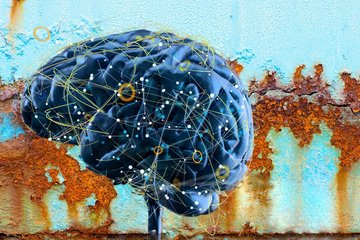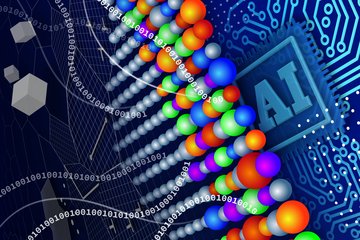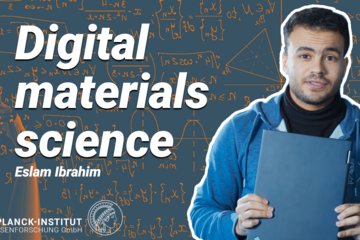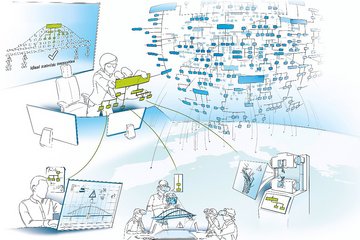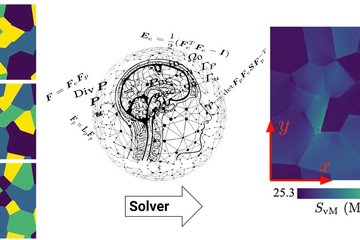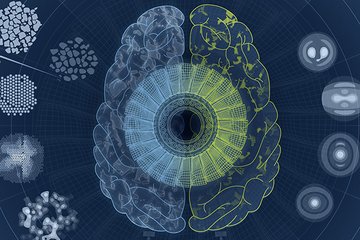Alle Typen
21.
Zeitschriftenartikel
Ultrastructural organization and micromechanical properties of shark tooth enameloid. Acta Biomaterialia 10 (9), S. 3959 - 3968 (2014)
22.
Zeitschriftenartikel
Struktur und Zusammensetzung von fossilen Haifischzähnen. BioNanoMaterials 15 (S1), S. 72 - 74 (2014)
23.
Zeitschriftenartikel
Characterization of crocodile teeth: Correlation of composition, microstructure, and hardness. Journal of Structural Biology 184 (2), S. 155 - 163 (2013)
24.
Zeitschriftenartikel
Extreme Optical Properties Tuned Through Phase Substitution in a Structurally Optimized Biological Photonic Polycrystal. Advanced Functional Materials 23 (29), S. 3615 - 3620 (2013)
25.
Zeitschriftenartikel
Effects of homogenization technique and introduction of interfaces in a multiscale approach to predict the elastic properties of arthropod cuticle. Journal of the Mechanical Behavior of Biomedical Materials 23, S. 103 - 116 (2013)
26.
Zeitschriftenartikel
Ab initio study of single-crystalline and polycrystalline elastic properties of Mg-substituted calcite crystals. Journal of the Mechanical Behavior of Biomedical Materials 20, S. 296 - 304 (2013)
27.
Zeitschriftenartikel
Synthetische Fluorapatit/Polymer-Dentalkomposite, basierend auf dem Vorbild Haizahn-Enameloid. BioNanoMaterials 14, S. 136 (2013)
28.
Zeitschriftenartikel
Strukturhierarchie, chemische Zusammensetzung und mechanische Eigenschaften von Haifischzähnen. BioNanoMaterials 13 (57) (2012)
29.
Zeitschriftenartikel
Correlation of structure, composition and local mechanical properties in the dorsal carapace of the edible crab Cancer pagurus. 11, S. 766 - 776 (2012)
30.
Zeitschriftenartikel
Influence of Near-Physiological Salines and Organic Matrix Proteins from Amorphous CaCO3 Deposits of Porcellio scaber on in Vitro CaCO3 Precipitation. Crystal Growth and Design 12 (2), S. 646 - 655 (2012)
31.
Zeitschriftenartikel
Modification of pineapple leaf fibers and graft copolymerization of acrylonitrile onto modified fibers. Journal of Composite Materials 46, S. 79 - 90 (2012)
32.
Zeitschriftenartikel
Fabrication of high-temperature resistant threedimensional photonic crystals with tunable photonic properties by biotemplating. 4, S. 516 - 522 (2012)
33.
Zeitschriftenartikel
Robustness and optimal use of design principles of arthropod exoskeletons studied by ab initio-based multiscale simulations. Journal of the Mechanical Behavior of Biomedical Materials 4, S. 129 - 145 (2011)
34.
Zeitschriftenartikel
Die Rezeptur der Hummerschale. Material & Technik, Bionanokomposite, S. 72 - 79 (2011)
35.
Zeitschriftenartikel
Ab initio study of thermodynamic, structural, and elastic properties of Mg-substituted crystalline calcite. Acta Biomaterialia 6 (12), S. 4506 - 4512 (2010)
36.
Zeitschriftenartikel
Revealing the Design Principles of High-Performance Biological Composites Using Ab initio and Multiscale Simulations: The Example of Lobster Cuticle. Advanced Materials 22 (4), S. 519 - 526 (2010)
37.
Zeitschriftenartikel
Influence of structural principles on the mechanics of a biological fiber-based composite material with hierarchical organization: The exoskeleton of the lobster Homarus americanus. Advanced Materials 21, S. 391 - 400 (2009)
38.
Zeitschriftenartikel
Microtexture and Chitin/Calcite Orientation Relationship in the Mineralized Exoskeleton of the American Lobster. Advanced Functional Materials 18 (20), S. 3307 - 3314 (2008)
39.
Zeitschriftenartikel
Influence of the microstructure on deformation anisotropy of mineralized cuticle from the lobster Homarus americanus. Journal of Structural Biology 161, S. 120 - 132 (2008)
40.
Zeitschriftenartikel
The composition of the exoskeleton of two crustacea: The American lobster Homarus americanus and the edible crab Cancer pagurus. Thermochimica Acta 463 (1-2), S. 65 - 68 (2007)

